Canon EOS 6D image sample
The following images are taken by a Canon
EOS 6D with 24-105mm f4L IS USM lens. All the images are taken by the Program auto
mode unless otherwise indicated. EOS 6D is set at the best quality 20-Megapixel
resolution with Auto White Balance.
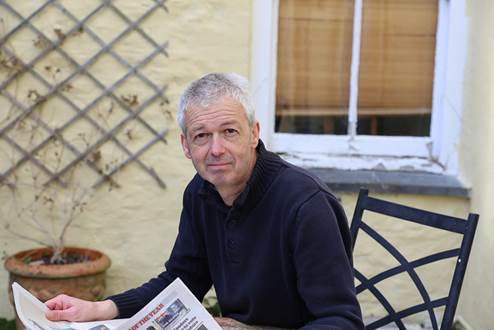
Portrait:
4.4MB, Program auto, 1/125, f5, 100 ISO, 24-105mm at 70mm
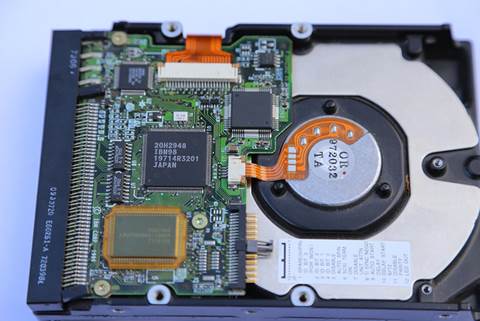
Close-up:
5.1MB, Program auto, 1/125, f4.5, 100 ISO, 24-105mm at 105mm

Interior:
6.5MB, Program auto, 1/100, f7.1, 400 ISO, 24-105mm at 24mm

Flea
market: 7MB, Program auto, 1/60, f5.6, 800 ISO, 24-105mm at 28mm
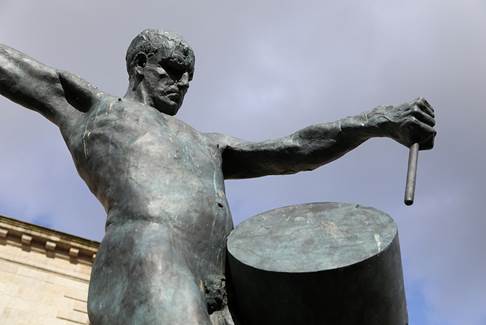
Statue:
4.6MB, Aperture priority, 1/100, f4, 100 ISO, 24-105mm at 47mm
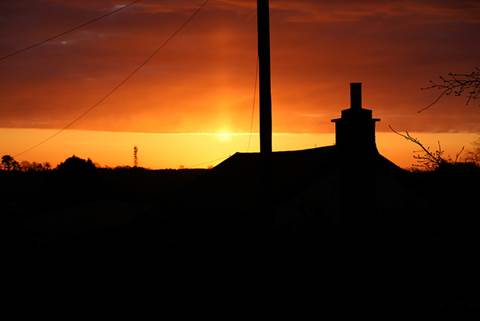
Sunrise:
Program auto, 1/200, f5.6, 1600 ISO, 24-105mm at 102mm
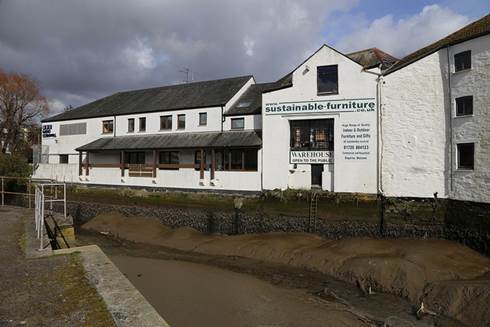
Landscape:
7.2MB, Program auto, 1/250, f11, 100 ISO, 24-105mm at 24mm
Verdict
There was time, not long ago, when the
price of a full frame DSLR was beyond the reach of most people, those who
couldn’t earn their living by being a photographer. After that, just in a couple
of weeks, Nikon announced D600, Canon followed that on its shoes with 6D, and
the reasonable-priced full frame DSLR become a truth that many people could
desire.
On the surface, it seems that Canon has to
create a big compromise to bring photography to the public. A viewfinder lacks 100%
coverage, a 11-point AF system seems to be normal and only one intersection, a
smaller-than-normal 3in screen, only 1 SD card slot, non-built-in flash and
back to the bad old days with changeable focus screen. When comparing, Nikon
D600 can easily win based on the technical specs score.
But looking beyond the basic technical
specs, there are things about 6D that are worth respecting, even elating.
Solid, partially magnesium alloy structure which is moisture- and
dust-resisting, an AF system able to work in extremely low light level,
continuously shooting capability and auto bracket options, of which the filming
mode is on par with EOS 5D Mark III.
Canon is also very thorough with the
segments; different models are not only judged on the platform of how they
provide, but at specific types of photographers. 6D doesn’t need the
sophistication of 19-intersection AF as 7D or anything approaches the 51-point
system of 5D Mark III, or, coming up, the 39-point AF system of D600. Why?
Because it’s a camera allowing travel and portrait photographers, the subject
of those doesn’t move that much.
What it has, more useful than those kind of
photography, is an AF working under extremely lowlight level, integrated GPS for
you to label your images with location data, and built-in Wifi allowing
sophisticatedly wireless controlling with a phone and the ability to upload
images whenever an access point is available. It’s also lightweight and compact
for a DSLR, and less heavy when carrying along, a thing that anyone who
upgrades from an APS-C model like 60D will respect.
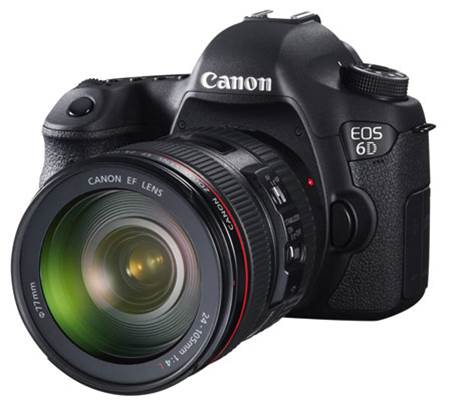
It’s
also lightweight and compact
Comparing
to Nikon D600
The fight between Nikon D600 and Canon EOS
6D is important to both companies because that’s a chance to encroach customers
from the rival- or fail. If you ignore the appearance of the mirrorless compact
system camera, the reasonable upgrading way for users of APS-C body is to step
up to an affordable full frame model. But if, as many DSLR consumers, you don’t
have to invest in the new lens, that’s the problem that can easily change the
loyalty. Therefore, with D600 Nikon is looking for not only keeping the current
customers within reach but also attracting the customer of Canon to come to it.
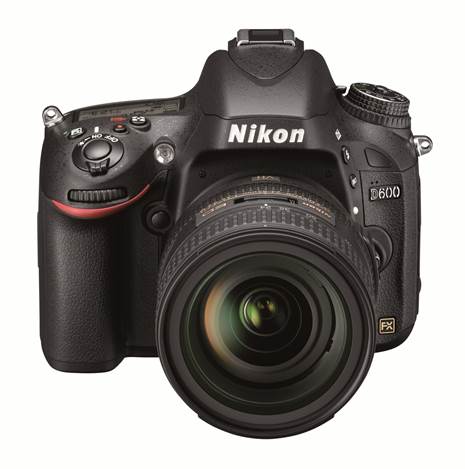
Nikon
D600
So, how do they measure? The obvious point
to begin is the sensor. The 24.3-megapixel sensor of Nikon has a bit higher
resolution than 20.2-megapixel sensor in 6D, but the quality from both are the
same; though, it’s worth noticing that Canon has a stronger opinion for
reducing noise for JPEG. Maybe more importantly, D600 suggest a DX-formatted
cropping mode allowing you to continue using any DX lens you own at down to
10.5-megapixel resolution. That seems to be a huge factor for the Nikon current
possessors expect for upgrade. Canon EOS 6D users who upgrade from a APS-C body
is not that lucky because the EF-S lens is not compatible with any full frame Canon
body, including even 6D.
Next to resolution, the factor seems to
affect a lot of people is the separate AF system, but I think that this is just
a distraction. On the surface of the 39-point AF system with 9-intersection
sensor of Nikon D600 is more sophisticated and capable than the 11-point AF
system of 6D which only has a central intersection sensor. The additional
sensor of D600 can cover a larger area, be more configurable and better when
tracking the small moving objects, but that’s half of a story. The AF system of
Canon EOS 6D is light-sensitive at much lower light level, which means you can
be able to continue to use AF until it’s getting dark. So, for shooting in
lowlight, such as at nightfall or night, 6D is the winner.
One brighter and larger viewfinder is one
of the advantages that a full frame DSLR provides and though the viewfinder of EOS
6D doesn’t provide 100% coverage as D600, this difference is insignificant and
direct comparison doesn’t reveal any major differences between them. The
different thing is that D600 allows you to turn off AF point overlay and add a
grille if you want, while on 6D you have to cover the focusing screen physically.
At 3.2 inches diagonally, the LCD screen of D600 is a bit larger than the 3in
screen of 6D and shares the same resolution, the different aspect ratios mean
that the images on 6D are actually larger.
Both samples have the equivalent continuous
shooting capability, D600 is a little faster at 5.5fps than with 6D at 4.5fps, but
Canon can shoot Large fine JPEGs infinitively while D600 is limited, if
according to the announcement, which is a chain of 100 frames. Move on to RAW shooting
and Canon manages 21 frames before filling the buffer, compared with 16 for
D600.
It’s interesting to note that D600 provides
almost the same filming mode as Canon EOS 6D, which also provides 24, 25 and
30fps recorded at 1080p resolution with 720p at 50 and 60 fps, all encoded by H.264;
though 6D also provides internal frame or inter frame compression option. 6D has
a socket for external micro but has non for the headphones. In general, I think
that with its DX cropping mode, the non-compressed HDMI output and the
headphone socket, D600 is a camera that is capable of better-filming than 6D. At
least at this level, Nikon has turned upside down the long-standing dominance
of Canon in this field.
D600 has some other functions that 6D does
not, including an integrated flash, double SD slot (compared to 1 on 6D), a timer
and shutter durability of 150,000 actuations - more than 50% compared to 6D. But
not everything is good for D600. The ace of 6D is the Wi-Fi ability and
built-in GPS, if you want these functions on D600, you have to pay extra money
for the accessories and bear inconvenience when having them mounted on the lid.
Above all, the Wu-1A Wi-Fi accessory that I check on D5200 doesn’t provide
anything at the equivalent level about built-in functions of 6D and the remote
control app with smartphone that is pretty basic comparing to Canon.
So on the paper, the balance seems to lean
on the side that is beneficial to D600, but in fact EOS 6D has many things to
propose it, especially when you lay yourself in a group that Canon aims toward –
travel, portrait and landscape photographers.